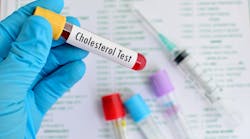Although more than 20 million Americans have health insurance through the Affordable Care Act (ACA), many of them choose to forego 15 preventive screenings covered under their plans.
Researchers Florida Atlantic University (FAU) and Cleveland State University (CSU) have released a study examining why paid sick leave benefits are a huge contributor to the lack of preventative health care in the country.
“Compared to 22 similarly developed countries, the United States is the only one that does not mandate employers to provide paid sick leave benefits or include paid sick leave in a universal social insurance plan," said LeaAnne DeRigne, Ph.D., lead author and an associate professor in the School of Social Work within FAU's College for Design and Social Inquiry.
Utilizing data from the ACA, the study’s authors used cross-sectional data from a sample of 13,545 adults aged 18-64 with current paid employment from the 2015 National Health Interview Survey (NHIS).
They examined the relationship between having paid sick leave and obtaining eight preventive care services blood pressure check, cholesterol check, fasting blood sugar check, getting a flu shot, being seen by a medical doctor or health care provider, getting a Pap test (females only), getting a mammogram (females only) and getting tested for colon cancer.
The analysis accounted for demographic and predictor variables including gender, marital status, education, race/ethnicity, full time work, insurance coverage, health status, limiting health conditions, family income, age and family size.
Workers who lack paid sick leave were “significantly” less likely to have received preventive health care screenings in the last 12 months, even among those previously told that they have a condition such as diabetes or cardiovascular disease that places them at higher medical risk, according to the research. They also found that workers without paid sick leave are 1.6 times less likely to have received a flu shot in the past 12 months.
American workers without paid sick leave also were:
- 30 percent less likely to have had a blood pressure check in the last 12 months
- 40 percent less likely to have had a cholesterol check in the last 12 months
- 24 percent less likely to have had a fasting blood sugar check in the last 12 months
- 61 percent less likely to have had a flu shot in the last 12 months
- 19 percent less likely to have seen or talked to a physician or health care provider in the last 12 months
- 23 percent less likely to have had a Pap test in the last 12 months
"Our findings demonstrate that even when insured adults are provided with free preventive screenings, paid sick leave is a significant factor associated with actually using the screenings," said DeRigne. "American workers risk foregoing preventive health care, which could lead to the need for medical care at later stages of disease progression and at a higher cost for workers and the American health care system as a whole."
Health care costs in the United States reached $3 trillion in 2014.
To read the full report which appeared in the Health Affairs journal, click here.
